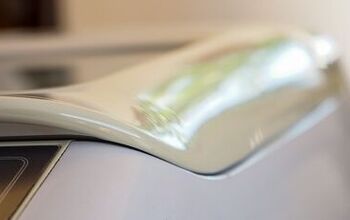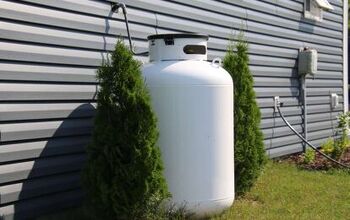How Long Does Tomato Sauce Last In The Fridge? (Find Out Now!)

You’ll be hard-pressed to find a sauce more versatile than tomato sauce. It can be used in all kinds of savory applications. Use it to stew meat, simmer beans, and of course, tomato sauce also pairs splendidly with pasta.
Many homeowners prefer to purchase tomato sauce in bulk because they know they’ll use it often. Storage also doesn’t have to be a big concern when it comes to tomato sauce.
Leftover canned tomato sauce can stay in your fridge for up to seven days if you store it the right way. That means transferring the tomato sauce from the can to an airtight container or a vacuum seal bag. However, tomato sauces that contain creamy dairy products should be completely used up after opening.
Extending the life of your tomato sauce is possible through proper storage. Find out how to handle your leftover tomato sauce better by reading on.
How Long Can You Keep Tomato Sauce in Your Refrigerator?
Because so many of us lack the time to cook as much as we want, we have to take some shortcuts. For a lot of home cooks, that means using canned or jarred tomato sauce instead of making the sauce from scratch.
The tricky thing about using store-bought tomato sauce is that a single container often holds more than what you need. Throwing out the excess tomato sauce would be a terrible waste. Thankfully, you can simply store the leftover tomato sauce in your refrigerator.
The tomato sauce left in the can or jar can be stored in your fridge for up to seven days. As long as the tomato sauce stays in the refrigerator, it should still be perfectly safe to use.
Still, there are factors that could affect the longevity of the leftover tomato sauce. Let’s talk about those factors below.
Improper Storage
Improper storage is a likely explanation for why the tomato sauce you kept in the fridge spoiled earlier than expected. The main thing you want to do when storing anything in the fridge is to protect it from spoilage. Often, continued exposure to the air and to bacteria can speed up the spoiling process.
To keep the threat of spoilage at bay, you need to store the tomato sauce properly. That starts with choosing the right items.
You have to use something that can stop any air from reaching the tomato sauce. An airtight container would be ideal here. If you don’t have an airtight container, you can go with a vacuum seal bag instead.
Also prepare a clean spoon if you intend to scrape the can or jar clean. Don’t go with a used spoon because it could introduce bacteria to the sauce and cause spoilage.
Gaps in Refrigeration
Keeping the tomato sauce continuously refrigerated is crucial to preserving it. Don’t take it out of the refrigerator for an extended period of time. If the power goes out for some reason, the condition of the tomato sauce could be jeopardized.
Ingredients Used in the Sauce
Tomato sauce itself is pretty resilient due to its acidic nature. The amount of acid present in the sauce can actually work to stop the growth of bacteria. Although the acidity of the tomatoes can slow down the reproduction of bacteria, other ingredients may have the opposite effect.
For example, dairy products can have an adverse effect on the longevity of tomato sauces. The dairy content counteracts the acidity of the tomatoes, thus creating a more neutral sauce.
From a flavor standpoint, you may appreciate the addition of those dairy products. In terms of longevity though, they are not helpful.
Any kind of tomato sauce with a creamy dairy component can spoil in a hurry. It’s possible that the sauce will spoil just hours after opening even if you keep it in the refrigerator. When using those tomato sauces, it’s better to just empty the jar and cook with it right away.
You should know though that not all dairy products can cause the tomato sauce to spoil faster. The presence of hard cheeses in the sauce is not going to affect its longevity.
However, you should watch out for other non-dairy ingredients. Check the label of the sauce and see if there are any ingredients there known for spoiling quickly. Once that first ingredient spoils, the rest of the sauce will inevitably be affected.
How Can You Tell if the Tomato Sauce Has Gone Bad?
The symptoms of spoilage are fairly easy to detect if you know what to observe. We’ve highlighted the main indicators of tomato sauce spoilage below so keep them in mind before using your leftovers.
Mold
Arguably the clearest indicator of spoiled tomato sauce is mold. Upon opening the container holding the tomato sauce, you may find something strange growing around the rim. In all likelihood, that is the dreaded mold.
The mold can also grow in the sauce itself. There’s no need to mess around with moldy tomato sauce. Moldy tomato sauce only belongs in the garbage.
Unusual Smell
It’s hard to describe the exact aroma of tomato sauce because it’s often characterized by the added ingredients. The herbs and spices used to flavor the sauce are the ones that release the most powerful aromas.
Still, you can probably tell just from the smell if a container of tomato sauce is no longer good to use. After opening the container, you’ll be greeted by an odor that can best be described as strange. You may not be able to accurately describe what tomato sauce should smell like, but you know it’s not that.
Bitter or Excessively Sour Flavor
Hopefully, you’ll notice the two aforementioned signs of tomato sauce spoilage first so you won’t have to taste it anymore. If you do end up tasting a spoiled batch of tomato sauce, you’ll notice the unusual flavor right away.
Tomato sauce is sour, but spoiled tomato sauce is overly sour. It’s also possible that the sauce will take on a bitter flavor. In any case, you’ll know right after tasting that the sauce should be nowhere near any dish.
What Are Alternative Methods of Storing Tomato Sauce?
There are other ways to properly handle the extra tomato sauce you purchased from the store. First off, you can freeze the sauce.
You will again need an airtight container or vacuum seal bag to hold the sauce. After transferring the sauce, put it in the freezer.
Frozen tomato sauce can last for an indefinite amount of time. It may lose some of its flavor the longer it stays in the freezer, but it won’t become unsafe to eat. If you want to retain the flavor, you should use the tomato sauce before it spends three months in the freezer.
The great thing about frozen tomato sauce is that it’s so easy to use. Just pop the frozen block of sauce out of the container and into a pan then start cooking right away. You don’t really have to thaw it beforehand.
The other method involves leaving the can of tomato sauce unopened. If you know immediately that you have too much sauce, place the excess can in your pantry and leave it there.
Don’t be scared off by the date on the can too. That “best by” date just indicates the manufacturer’s best guess for how long the tomato sauce will be at its peak. You can still use the sauce after that date as long as the can remained unopened.
What you should check is the condition of the can. A damaged can is no longer capable of preserving the tomato sauce. Unfortunately, you’ll have to throw out the sauce if the can has been badly damaged.
Related Questions
How Long Can You Keep Homemade Tomato Sauce in the Refrigerator?
When it comes to shelf life, canned tomato sauces and homemade tomato sauces are not exactly the same. That difference is especially noticeable when checking out how long they can stay in the fridge.We already mentioned that canned tomato sauce can stay for up to a week inside a refrigerator. Homemade tomato sauce should be stored in the refrigerator for no longer than four days. If you added cream or similar dairy products to your homemade sauce, its shelf life will be even shorter.Freezing is different though. Both homemade and store-bought tomato sauces last for the same length of time in the freezer assuming similar storage.
How Long Can Homemade Tomato Sauce Remain at Room Temperature?
You must avoid leaving homemade tomato sauce at room temperature. Left at room temperature, homemade tomato sauce simply becomes a prime breeding ground for bacteria.At most, homemade tomato sauce can only remain at room temperature for two hours. Ideally, though, you should store it in the refrigerator well before then.
Can You Safely Refrigerate Tomato Sauce That Has Already Been Heated Once?
Generally speaking, you should only reheat food once. Reheat something more than once and you’re making it more vulnerable to bacteria.The same goes for tomato sauce. As much as possible, you should only reheat the sauce one time.If you do have sauce leftover again, you can still store it in the fridge. This time around though, it can only stay in the refrigerator for a maximum of three days.
More Related Guides

Gary Evans is passionate about home improvement. He loves finding out how to make improvements in the easiest, most practical, and most affordable ways. Upgrading his home kitchen is one of his ongoing hobbies. Gary is also a long-time content creator and enjoys spending his free time tending to his hydroponic vegetable garden.
More by Gary Evans



























